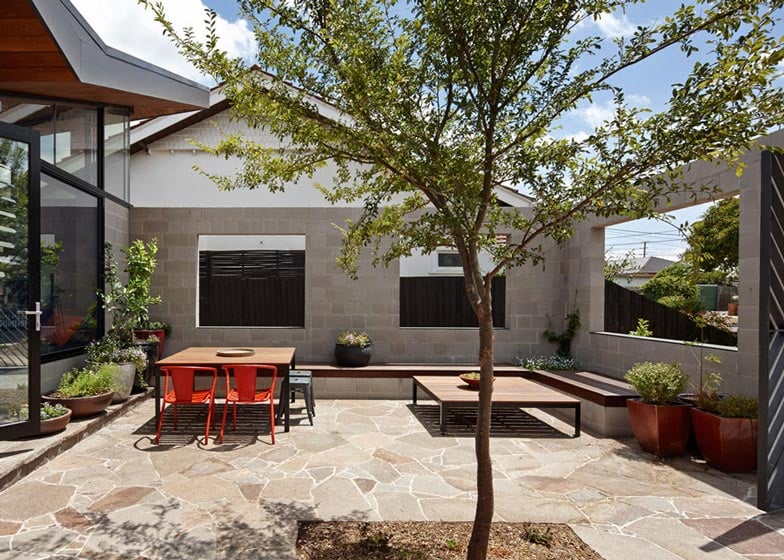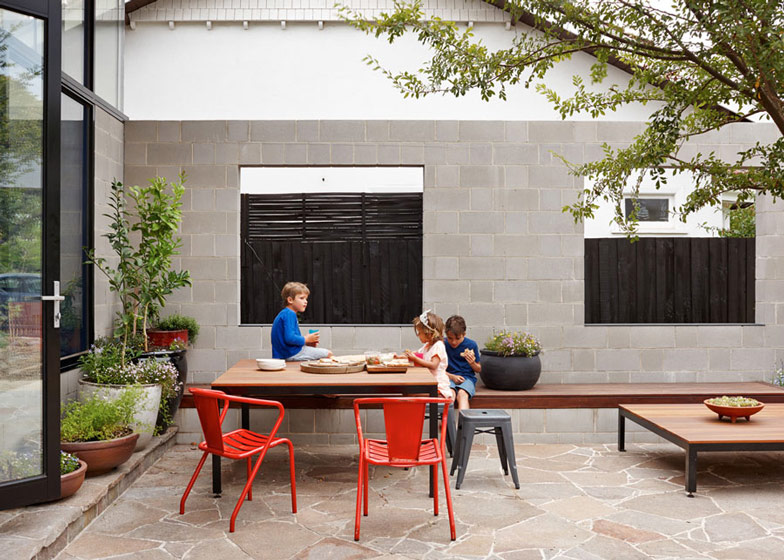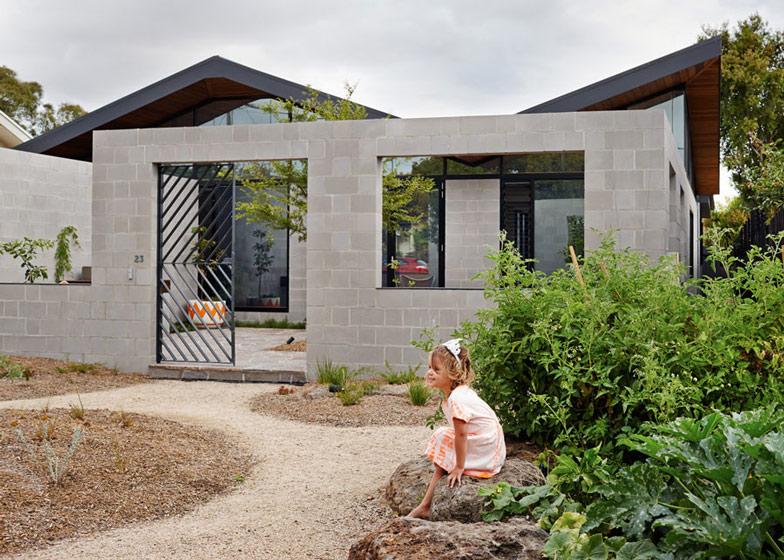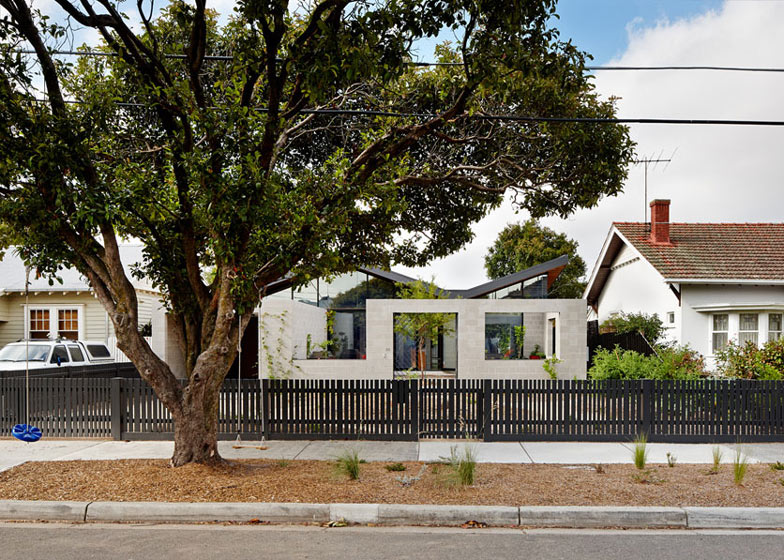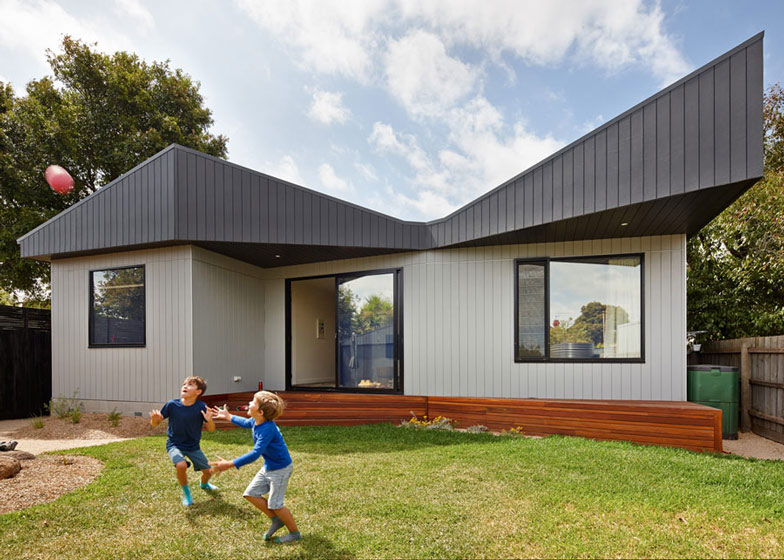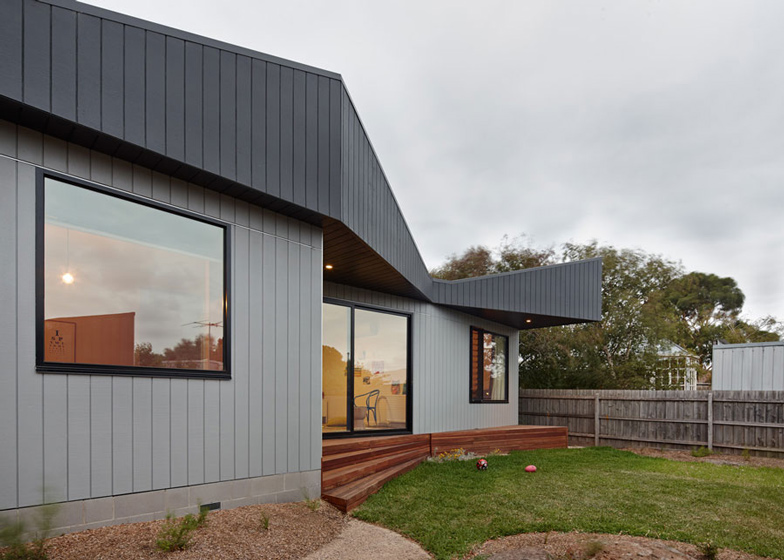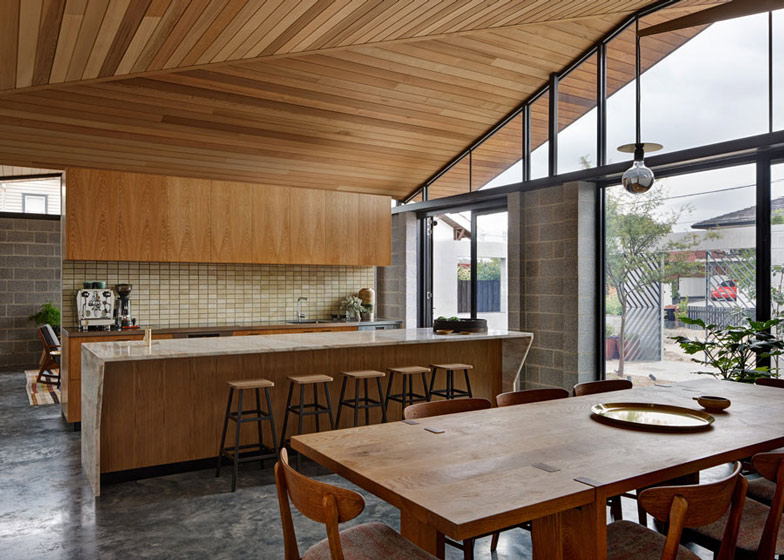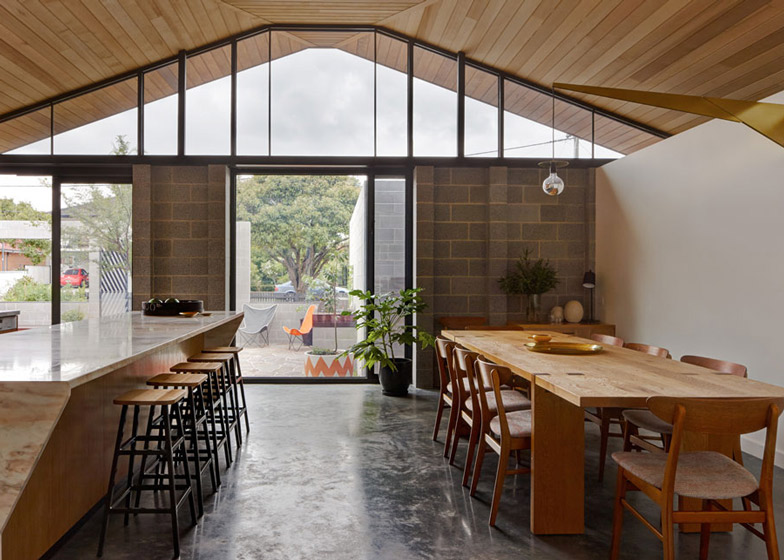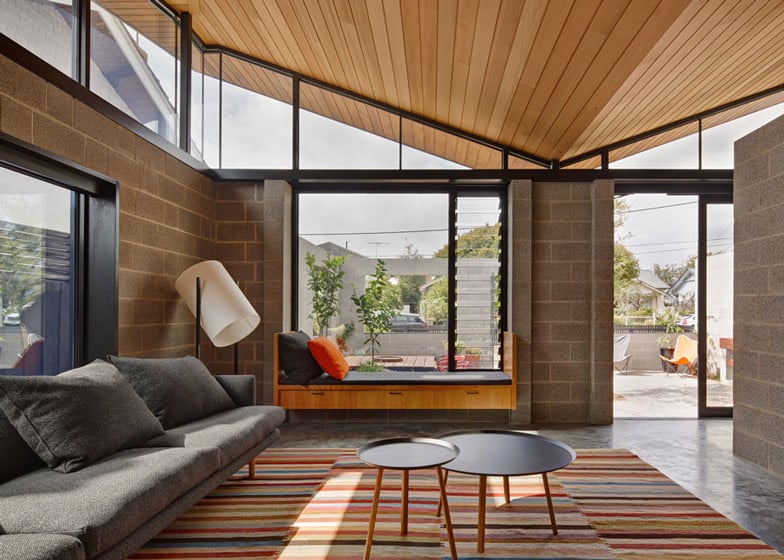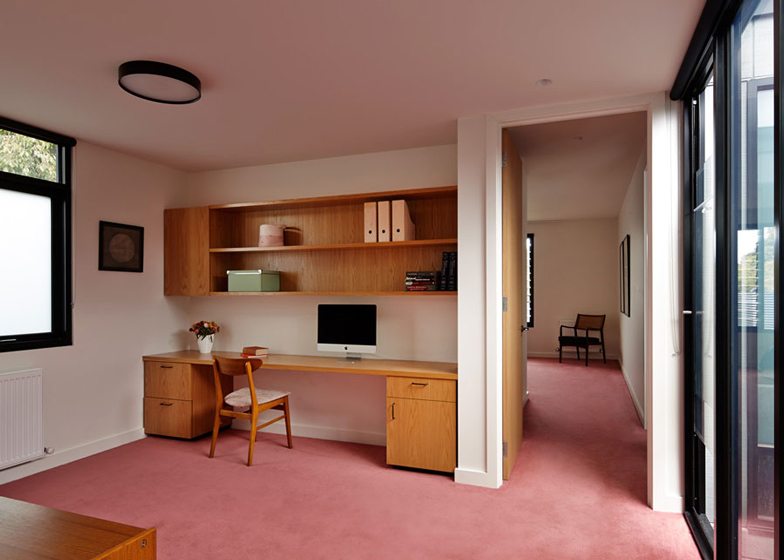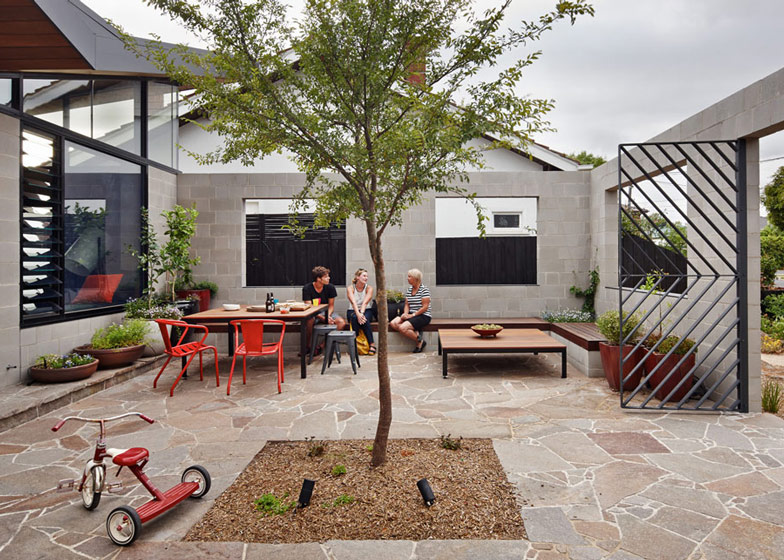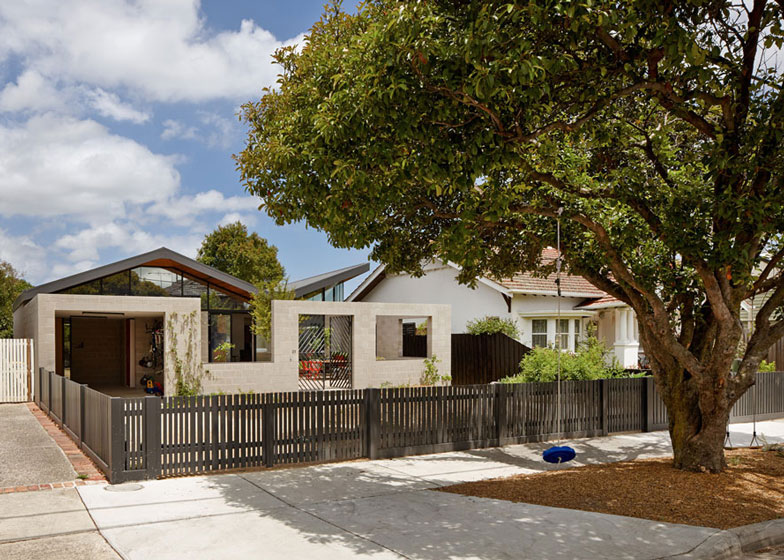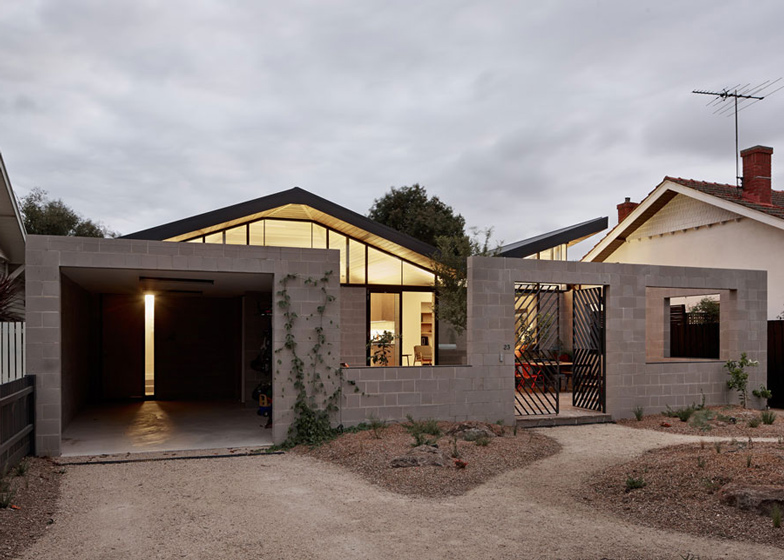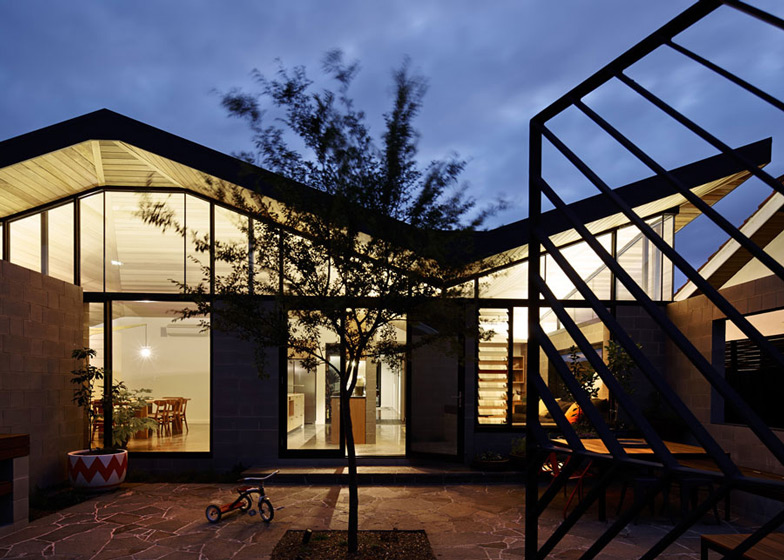Concrete block walls with window-like apertures surround a courtyard at the front of this Melbourne house by local practice MRTN Architects, which also features an angular wooden roof (+slideshow).
MRTN Architects designed the family home, named Fairfield Hacienda, so that it would engage with neighbouring properties on its suburban street. The designers convinced the clients to downscale the building's planned footprint by a third, making room for a courtyard that acts as an uncovered outdoor living room.
"The enclosed courtyard is located to the north of the house and creates a buffer between the street and the house, allowing the living spaces to open up to and access northern light and warmth," the architects explained.
A path that meanders through a small garden leads from the street to the courtyard, which is level with the fronts of the adjacent houses.
The walls shelter the courtyard from the wind but contain holes that allow the residents to see their neighbours and people passing on the street.
A tree at the centre of this outdoor space provides some shade from the sun, while vines and other plants will eventually cover the concrete walls, giving it the appearance of a secret garden.
Concrete blocks enclosing the courtyard continue along the front of the house and also appear internally, where they are polished to a smooth finish.
The material is used for the front half of the house and was chosen for its high thermal mass, which reduces the need for artificial heating and cooling.
Glazed panels create a gap between the solid walls and the angular projecting roof, which is covered on the underside with red cedar.
The faceted ceiling appears to hover above the main living room and kitchen and dining space, where it complements an angular stone-clad breakfast bar.
A small courtyard at the centre of the home separates two wings occupied by the parents and children. Plants inside the glazed structure will gradually grow and increase the privacy of these areas.
The rear half of the property containing the bedrooms and bathrooms is constructed from a timber frame and clad in plywood panels.
Photography is by Peter Bennetts.
Here's a project description from MRTN Architects:
Fairfield Hacienda
On the fringe of Melbourne's inner suburbs, this new family home sits in an established residential street of Victorian villas and Californian bungalows. From the footpath, the Fairfield Hacienda with its angled roof fits into the landscape of single level homes, effortlessly picking up the street's original pattern of hipped and gabled roof forms.
A closer look however, reveals that this new house sits behind a sunny, walled courtyard. This room without a roof, except for a sheltering courtyard tree, is an extension of the living and dining spaces that open onto it. The enclosed courtyard is located to the north of the house and creates a buffer between the street and the house allowing the living spaces to open up to and access northern light and warmth.
The front wall of the courtyard matches the front setback of the adjacent neighbours. In holding the typical front setback of houses along the street, and setting the house to the south, a sun filled outdoor area is created that can be used as a living, dining or play area.
The courtyard space also becomes a semi-public space allowing interaction between the owners and local passerby's; responding to the owners desire that the house engage with the established residents in the area.
The concrete block walls of the courtyard continue without interruption through the house's main living areas. These walls remain unchanged except for the patina. Outside they are rough and weathered, but become polished and honed once inside. The design is not precious of the courtyard walls, eventually vines and creepers will take over the exterior concrete block and create a walled garden that will change by season.
The living spaces are covered with an undulating canopy of cedar, a warm blanket of timber. From the exterior the roof form relates to the neighbouring roof geometries along the street but from inside the roof dips and rises to define the dining, kitchen and living spaces below. The timber ceiling is kept clear of down lights and services, all lighting is provided by concealed perimeter uplighting, at night the roof appears to float over the masonry walls below.
Beyond the living spaces the private zones of the house are arranged as two wings, a parents wing and a children's wing, that wrap around a small courtyard. This central planted courtyard provides light and ventilation to the centre of the house. Currently parents and young children can see each other through this void but over time planting will create greater privacy for older children.
The owners' brief was to create a long-term family home, somewhere they could become a part of the street and its ongoing history. The Fairfield Hacienda sits comfortably within its local context while creating a contemporary light filled home that is orientated to the north and provides a variety of spaces to live in, both inside and out.

